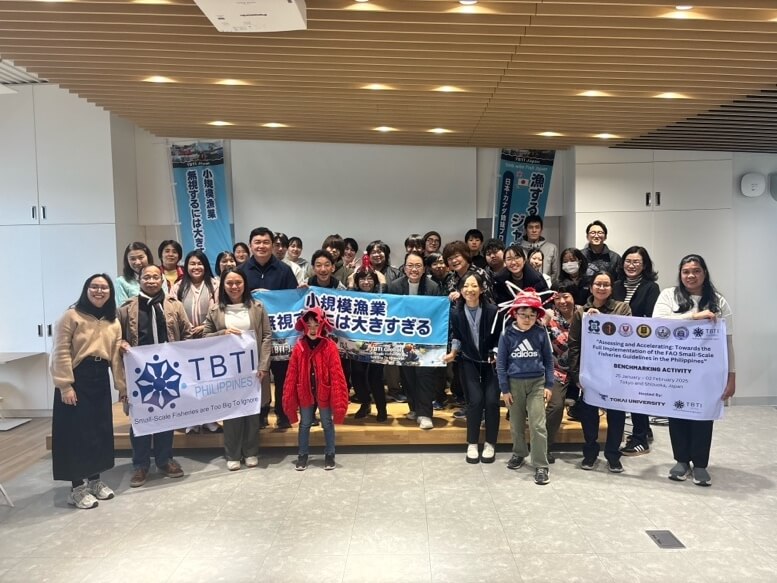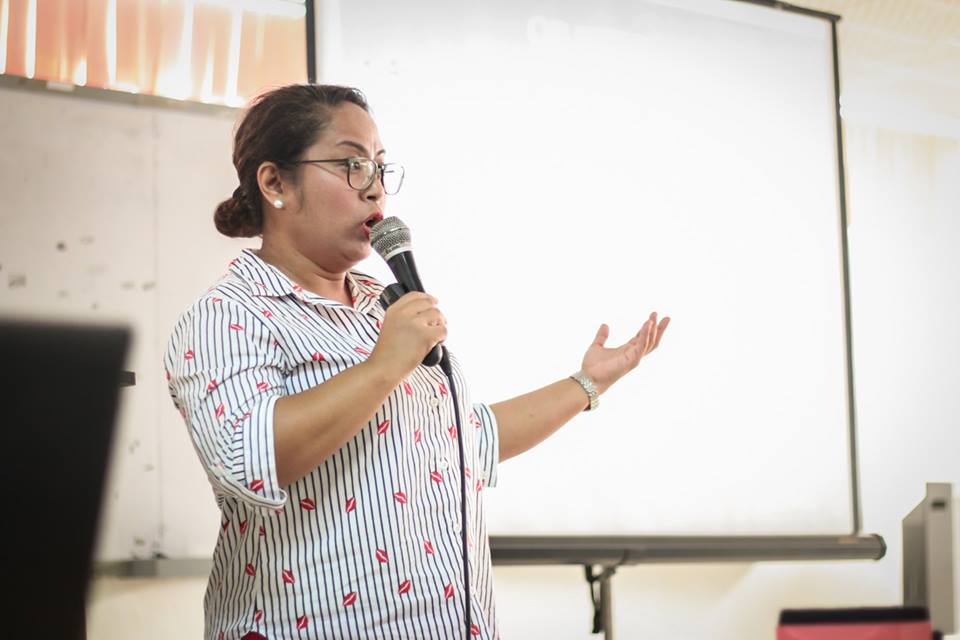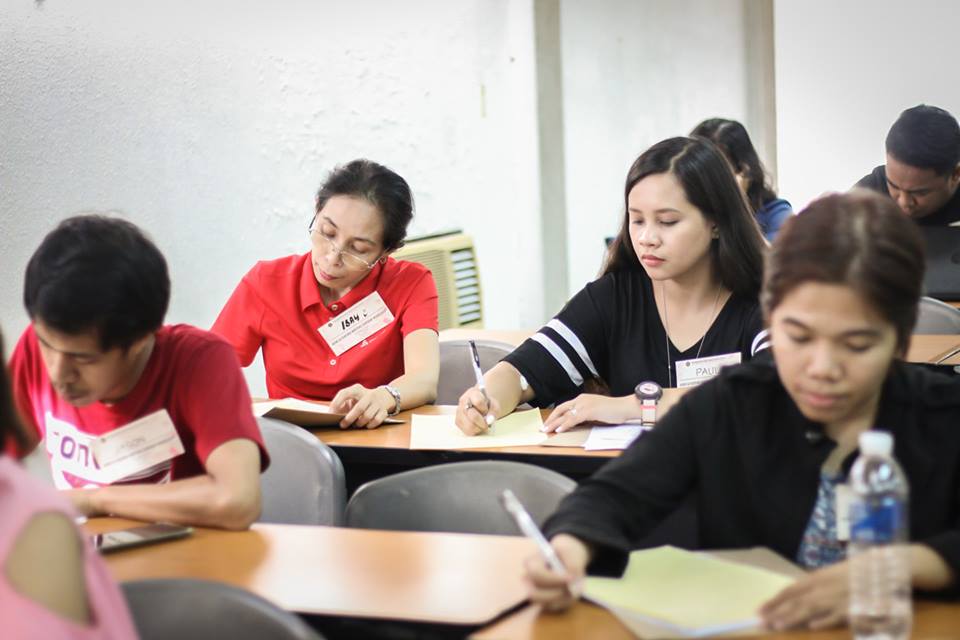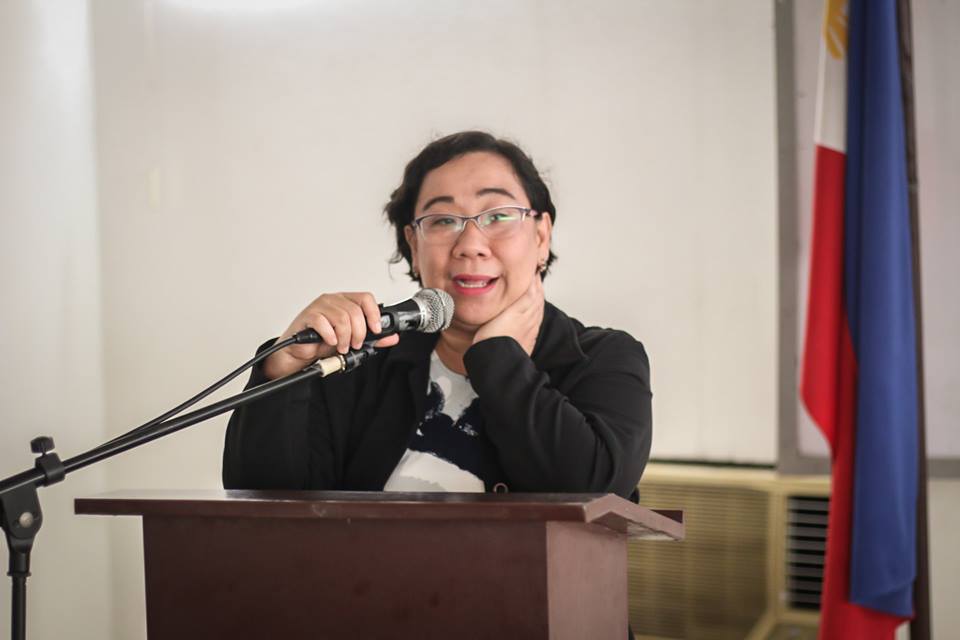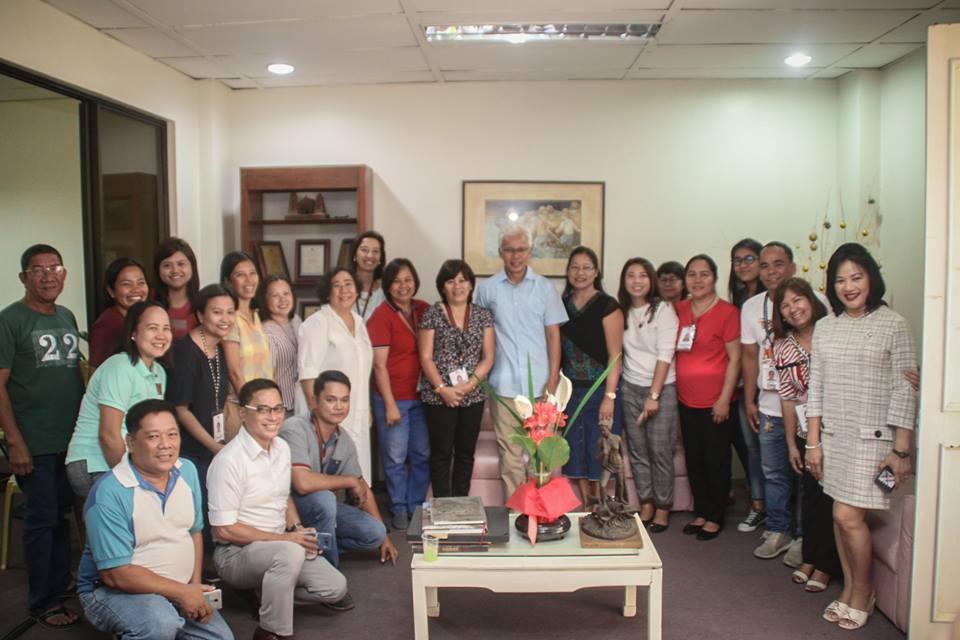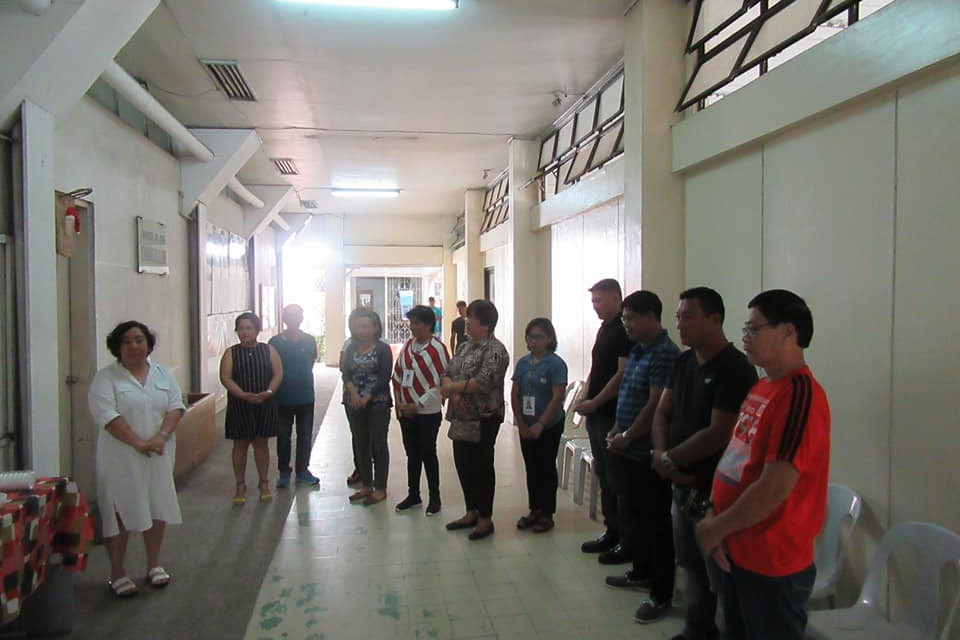The Department of Science and Technology – Philippine Council for Agriculture and Aquatic Natural Resources Research and Development (DOST-PCAARRD) funded project, ‘Assessing and Accelerating: Towards the Full Implementation of the FAO Small-Scale Fisheries Guidelines (SSF Guidelines) in the Philippines,’ conducted a benchmarking activity last 25 January – 02 February 2025 in Japan. The benchmarking activity was hosted by Tokai University and TBTI Japan.
The research project is being implemented at the University of the Philippines Visayas (UPV) in collaboration with the Batangas State University ARASOF-Nasugbu (BatStateU ARASOF-Nasugbu), Mindanao State University at Naawan (MSU at Naawan), Partido State University (PSU), and the Zamboanga State College of Marine Sciences and Technology (ZSCMST). These higher education institutions are all members of the National Consortium for Small-Scale Fisheries Research and Development or Too-Big-To-Ignore (TBTI) Philippines, based at UPV.
The research team includes Prof. Alice Joan Ferrer (Vice Chancellor for Academic Affairs of UPV, Executive Director of TBTI Philippines, & Project Leader), Prof. Harold Monteclaro (Dean, College of Fisheries and Ocean Sciences, UPV), Prof. Maria Luisa Valdez (Dean, College of Arts and Sciences, BatStateU ARASOF-Nasugbu), Dr. Anabelle Dece Espadero (Director, Research and Innovation Institute, MSU at Naawan), Prof. Raul Bradecina (Vice President for Research, Extension, and Knowledge Management, PSU), and Assoc. Prof. Maila Pan (OIC- Vice President for Research, Innovation, and Extension, ZSCMST), Ms. Jinky Hopanda (Project Technical Specialist), and Ms. Pearl Aljean Santacera (Project Technical Assistant).
Dr. Yinji Li, associate professor of the School of Marine Science and Technology at Tokai University and hub coordinator of TBTI Japan, led the hosting of the benchmarking activity. Tokai University is one of Japan's largest research and general education institutions, consisting of seven campuses nationwide. Meanwhile, TBTI country hubs are established to strengthen the national network of researchers and stakeholders supporting small-scale fisheries (SSF), highlight their contribution to food security, social well-being and ecosystem health, and enhance the inclusion of SSF in national policies and development strategies. Currently, the eight TBTI country hubs are TBTI Bangladesh, TBTI Canada, TBTI Ecuador, TBTI Japan, TBTI Malaysia, TBTI Mexico, TBTI Nepal, and TBTI Philippines.
Fisheries in Japan, despite being a developed country, are essentially small-scale and have a long tradition of coastal community-based fisheries management that has been used to ensure that the resource base is harvested in a sustainable manner. The benchmarking was conducted to know firsthand how the SSF Guidelines is being implemented in Japan, what it holds for Japan, and identify lessons and challenges in its implementation.
In Tokyo, the research team met key persons from Japan’s Central Government, specifically from the Fisheries Agency of the Ministry of Agriculture, Forestry, and Fisheries.
Several round table discussions were also made with relevant national fisheries institutes, associations, and federations in the country such as the National Association of Fisheries Infrastructure (NAFI), Japanese Institute of Fisheries Infrastructure and Communities (JIFIC), and National Federation of Fisheries Mutual Aid Associations (NFFMAA).
Shizuoka, the Fisheries Development Division shared the prefectural government’s current programs in fisheries and their ways forward.
The Fisheries Vocational High School opened its school grounds and facilities and emphasized the role of the school to train young people to secure capable successors of the fishing industry.
Meetings with various Fisheries Cooperative Associations (FCAs) in Shizuoka fishing communities were also held to learn firsthand their vital role in fisheries management and community revitalization. The research team was received by the Mochimune FCA, Yui FCA, Yaizu FCA, and Marukai fish buyers/processors.
Prof. Hiroshi Saito, Dean of the School of Marine Science and Technology, Tokai University, welcomed the research team and introduced the school’s facilities. This includes the university-operated research and training vessel, Bosei Maru, which is used for oceanographic research and educational cruises.
The ‘Girls Who Fish Japan’, a program inspired by the Canadian ‘Girls Who Fish’ program, organized an exchange event with the research team. The first part of the program consisted of lectures given by Prof. Izumi Seki from the Faculty of Humanities of Tokai University and Prof. Ferrer. Prof. Seki talked about the Fisheries and Gender in Japan, while Prof. Ferrer shared about the Philippines.
The second part was an art workshop supervised by Prof. Ferrer. Various artworks were created from plastics.
Prof. Ferrer and Prof. Monteclaro also awarded a plaque of appreciation to Dr. Li for her invaluable efforts and support as host during the research project’s benchmarking activity. A printed copy of the TBTI Philippines book, ‘Portrait of Small-Scale Fishers in the Philippines,’ edited by Prof. Ferrer and Prof. Monteclaro was also given to Dr. Li.
The benchmarking activity fostered collaboration and knowledge exchange to strengthen the small-scale fisheries sector in the country.

